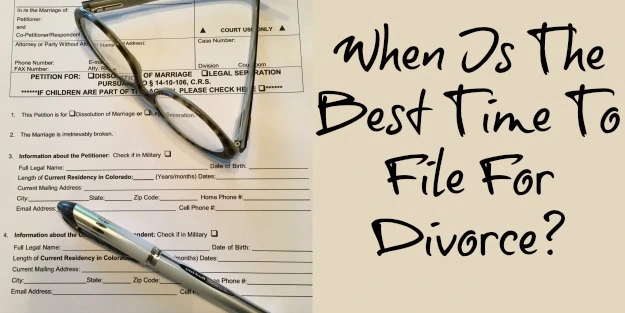
Providing Divorce Mediation Services Throughout California
Providing Divorce Mediation Services Throughout California
Home » Divorce and Family law Blog » Desiree’s Story: Unmarried Couples & Common Law Marriage

You currently are seeing Desiree who has been living with Brian for over 15 years. She considers him her life partner, but they have not legally married and have no intention to marry. Desiree and Brian have promised to support each other forever, and even have a family in the future. They have pooled their resources together and have several joint accounts. Desiree is no longer happy; and, despite her best efforts, she cannot seem to make it work. She’s worried. She has not worked for the past 10 years relying on Brian’s support, while she stayed home and took care of the house. She fears she will have no income or assets if she leaves Brian.
Have you had a case like this and wondered whether the law would treat them as married and whether Desiree has any hope of financial security? Maybe you have thought someone like Desiree could claim she had a common-law marriage. In this column, I want to provide you a basis of what laws might apply to non-marital relationships like Desiree’s so that you will have a better idea of what one of your clients might be facing if their relationship dissolved or even if one party were to pass away.
You’ve probably seen a movie where a character finds himself trapped in a divorce proceeding because he was duped into a common-law marriage. What’s a common law marriage? A marriage is based on the parties’ consent or mere cohabitation. A state license or solemnization is not required. In other words, simply because the couple has been living together or stated they are married, the court would consider the couple married. Here’s where Hollywood creates wild stories of couples who might have pretended they were married to each other once at a social gathering to fool an ex, and this prank is later used to demand one-half of the “marital” property!
Not so fast Hollywood. In California, common-law marriages have been abolished. In California, to have a valid marriage, a couple must consent to the marriage and validate the consent with the issuance of a marriage license, solemnization, and authentication.
There is one caveat. Since common law marriages still exist in other states, if the couple has a lawful common law marriage from another state and moves to California, California courts will uphold it. Since Desiree and Brian are in California (and always have been), Desiree is out of luck.
Although common law marriages do not exist in California, there are two other ways that California quasi-marital property laws (community property laws for nonmarital couples) might apply to nonmarital couples and Desiree: (1) putative marriages or (2) a Marvin contract.
A putative spouse or putative marriage is one where at least one person has good faith and reasonable belief in the validity of a legal marriage. Keep in mind. A party’s good faith belief in the validity of the marriage is not tested by whether he or she believes a marriage lawfully occurred under a private, secular, or spiritual standard. It must be based on California licensing requirements. For example, you might have a putative spouse if the couple failed to properly record the marriage license, or one party did not know he or she was in a bigamous marriage.
If a putative spouse or marriage is proved, then the putative spouse is entitled to quasi-marital property, support such as alimony, and attorney’s fees and costs. In Desiree’s situation, neither she nor Brian consented to be married or attempted to have a legal marriage in California. Thus, Desiree would not be considered a putative spouse or able to benefit from California’s marital property laws.
There is one other avenue. Although non-marital cohabitation does not afford parties community, quasi-community, or quasi-marital property rights outside of a domestic partnership, that does not mean non-marital couples are completely out of luck. Non-marital couples have the same right to enforce contracts and assert equitable rights and interests as any other unmarried persons. Thus, a party in a non-marital relationship could bring a contract claim.
For example, if the parties were to enter an express or implied agreement to provide financial support or share earnings and accumulations, so long as the consideration is not for unlawful purposes such as sexual services, a party would have an action to enforce the contract. This is known as a Marvin contract or Marvin claim.
Legally, a Marvin contract is similar to a civil contract. For written contracts, a claim must be brought within four years of the breach (generally the break up of the relationship), and oral or implied contracts must be brought within two years. However, unlike community and marital property laws, with a Marvin contract, the claimant has to prove by a preponderance of the evidence that a contract existed, and even a higher evidentiary burden if the property is not titled jointly. If the claim succeeds, the Marvin claimant would be entitled to contract remedies. For example, if the parties had an implied contract to share earnings, the earnings would be ordered shared. Marvin’s claims are subject to civil court, and if they proceed to trial, are likely to be in front of a jury. Keep in mind, that Marvin’s claims are tricky and require a great deal of work. It’s never guaranteed.
More and more couples are choosing to cohabitate. It becomes problematic when the parties join their assets and take on traditional roles, but do not have legal protection. If you have couples in non-marital relationships who need to define their relationship and protect themselves, they might consider entering a Cohabitation Agreement, with the help of a lawyer or mediator. In the case that their relationship is dissolved, the Cohabitation Agreement will be a clear guide regarding their agreement and they will be better suited to addressing these issues, rather than dealing with the nuances of the law while emotions run high.
If you have a topic you’d like to see addressed, or comments and questions about this column, feel free to reach me at (408) 357-3486 or [email protected]
Dina Haddad is the founder of Families First Mediation, a family law mediation boutique, and provides family law mediation services in San Jose. She is a panel neutral for the Agency for Dispute Resolution, headquartered in Beverly Hills, and sits as judge pro tempore for the Santa Clara County personal property arbitration program. She may be reached at (408) 357-3486, [email protected], or through her website at www.ffmediation.c


Families First Mediation is a pioneer in the field of divorce mediation. Our entire divorce mediation team takes great pride in being active trainers, divorce mediators and teachers of mediation in the greater California area. If you are considering a collaborative divorce, legal seperation or looking for a san jose divorce lawyer we have services that may be beneficial to you. Take advantage of our vast expertise and background in the field of divorce mediation and our genuine desire to help with your divorce mediation services.